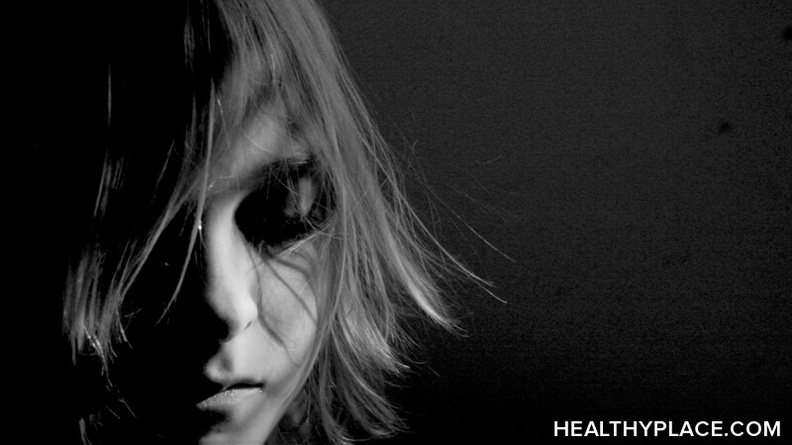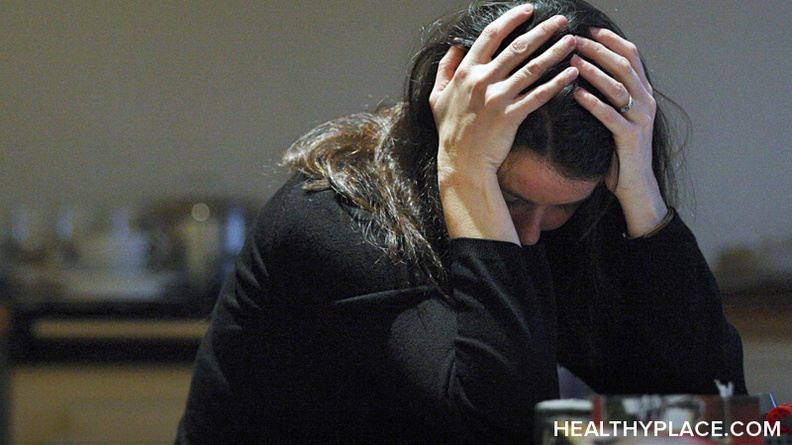What Is Treatment-Resistant Depression?
Clinical depression can be difficult to treat. But what do you do when you have treatment-resistant depression and no depression treatment seems to work?
Treatment-resistant depression (TRD) refers to depressive episodes that are not controlled by usual means of treatment. Some experts believe that TRD involves ineffective response to two "adequate trials" of antidepressant medications (of different classes). What this means is that there is not a positive response to antidepressants given for a minimum of 8-12 weeks at high enough therapeutic doses. Generally, to be called treatment resistant, it is required that there is failure to respond to two different trials of antidepressant medications of different classes (for example, SSRIs, SNRIs, tricyclic antidepressants, and others) each used at adequate doses. To review the various classes of antidepressant medications, please see appropriate areas of the HealthyPlace.com website.
Some Depression Patients Aren't Really Treatment-Resistant
One of the "flies in the ointment" when it comes to treatment of depression is that often patients do not take antidepressant medications either: long enough, or in high enough doses to be considered "an adequate trial." In my own practice, I see patients who have said they have not responded to trials of many antidepressants, but when I question them further, I find out they:
- didn't take the depression medications long enough for them to work, or
- they did not take the antidepressants in high enough doses to be adequate to see if they might have responded to a longer time or higher dose.
In the NIMH-sponsored Star*D trial, it was discovered that many patients do not respond to the first antidepressant they are given. From the first antidepressant to the second, third or fourth choices of treatment, the response rate goes down even further. It is usually suggested that if a patient is not responding to an antidepressant in a large enough dose for a long enough trial, then they should be tried on an antidepressant with a different way of working on the brain (a different class of medication). For example, if someone fails on an SSRI (Prozac, Zoloft, Paxil, Celexa, or Lexapro) , then it makes sense to try them on perhaps an SNRI (Effexor, Pristiq, or Cymbalta) or Wellbutrin. If they do not respond to them, other medications can either be added to the initial antidepressant (a process called augmentation with medications, such as lithium, thyroid medication, BuSpar, or other choices), or the patient can then be switched to a different class of medication, such as one of the tricyclic antidepressants (Elavil, Tofranil, Sinequan, etc.). If there is no response to the second choice of medication, others can be added or begun, or a trial of a more intensive biologic treatments (such as: shock treatments, transcranial magnetic stimulation (TMS), etc.) may be used.
In March 2009, the FDA approved Symbyax for the treatment of treatment-resistant depression. It is the first drug approved for this condition. Symbyax is a pill that combines Zyprexa (olanzapine) and Prozac (fluoxetine HCl) in a single capsule.
It is also important to note that psychotherapy for treatment of depression can be very useful instead of, or in addition to medications being used. Often it is the use of psychotherapy that can be of most benefit.
There is some data that certain nutritional supplements: such as omega-3 fatty acids, St. John's Wort, Kava Kava, and others may be helpful for some people with depression.
The key is to "do something" if the first or second antidepressants do not work. Unfortunately, although response rates are good for the initial antidepressants, there are many people who do not respond to the first or second choice.
Finally, I believe it is important that if the first or second antidepressants tried do not work adequately that a person be seen by a psychiatrist who specializes in the treatment of resistant depressions. I also believe that it is important to keep the lines of communication between patient and doctor open so that discouragement and negative mindset can be avoided.
Treatment-resistant depression can be effectively treated in most cases, but it may take time and trials of many different treatments before the best one for that patient is found. On The HealthyPlace.com TV Show this Tuesday night (April 21 at 7:30p CT, 8:30 ET), we will discuss the topic of treatment-resistant depression even further. I hope you'll join us.
I also want to recommend that you read The Gold Standard for Treating Depression. You will find authoritative information on all aspects of depression treatment.
Dr. Harry Croft is a Board-Certified Psychiatrist and Medical Director of HealthyPlace.com. Dr. Croft is also the co-host of the HealthyPlace TV Show.
next: How to Manage Your Panic Attacks
~ other mental health articles by Dr. Croft
APA Reference
(2009, April 19). What Is Treatment-Resistant Depression?, HealthyPlace. Retrieved
on 2026, January 30 from https://www.healthyplace.com/about-hptv/croft-blog/what-is-treatment-resistant-depression

